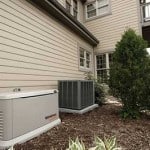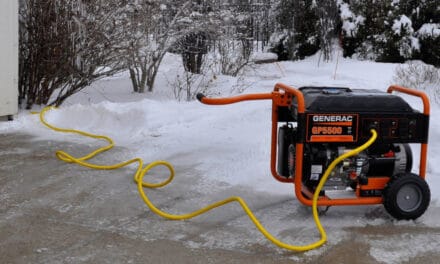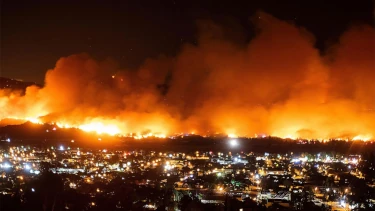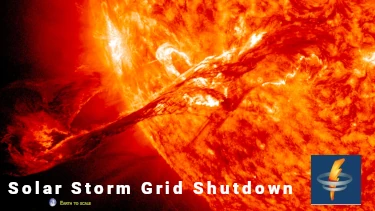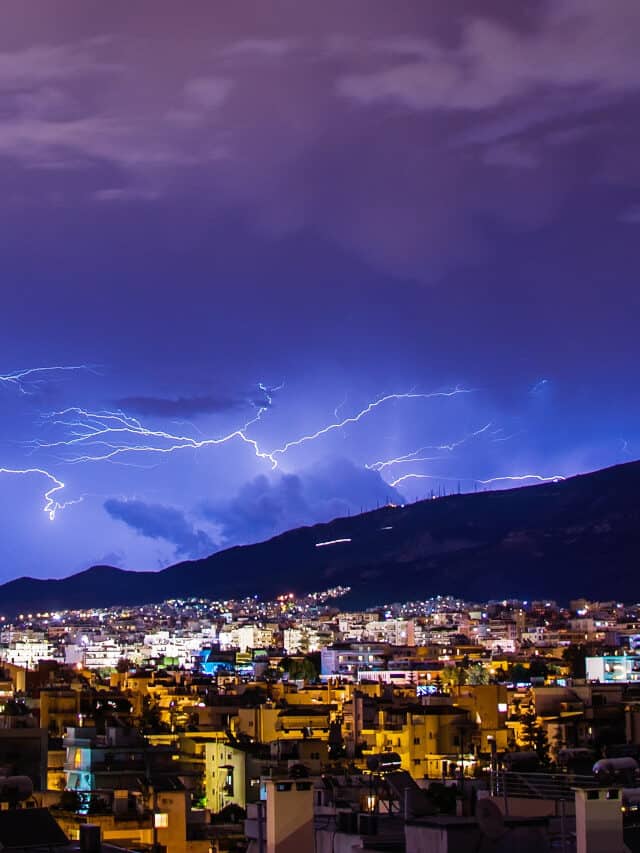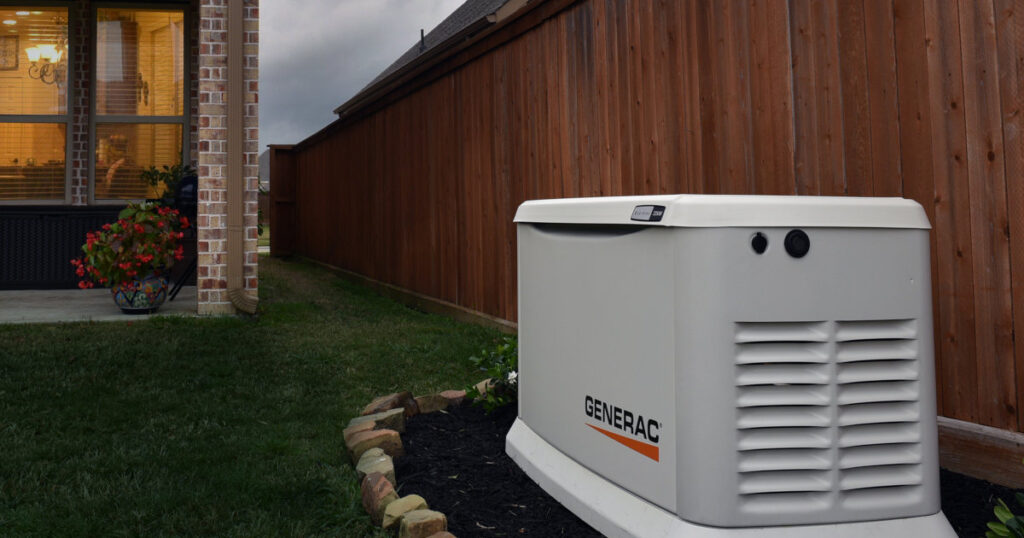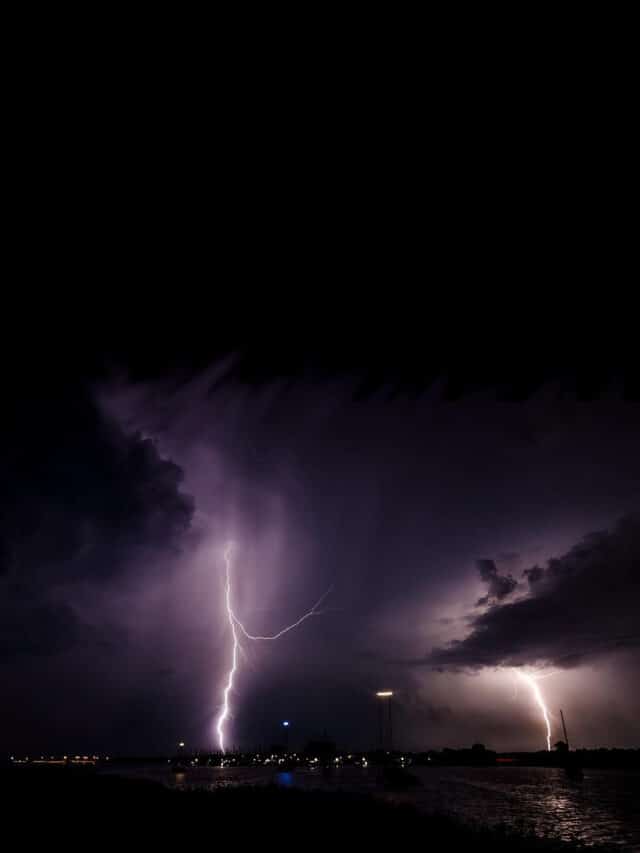Generators convert mechanical energy into electrical energy. Home standby, commercial standby, portable, and RV generators use an internal combustion engine that runs on liquid or gaseous fuel to provide the mechanical energy that turns the generating unit.
Fuels for generator engines can impact how much energy the machine is capable of producing. Fuel freshness also affects performance. Keeping enough fuel on hand is another issue that anyone operating a generator must address when making choices.
Norwall PowerSystems Generators
Generator Types
Standby generators start and run automatically without human intervention. They are permanently installed for use during a power outage and have regular exercise cycles. An uninterrupted supply of fuel is necessary, making natural gas and LP gas (propane) the most common fuel for standby generators. Generators large enough to supply hospitals and other large institutions or businesses sometimes use diesel fuel, and some small standby generators also use diesel.
Portable generators require manual fueling and starting. They are dependent on their operators to keep them running with a continuous supply of fresh fuel and to operate their exercise cycles. Gasoline is the most common fuel, but LP gas and diesel also fuel some portables. Portable inverter generators are small, quiet, and very fuel efficient.
RV generators usually draw on the fuel type the vehicle uses for their own supply, with the exception of trailer-type RVs that commonly power their generators with LP gas.
Natural Gas
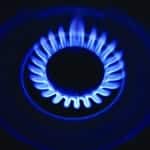 Natural gas is a clean burning fuel often used for heating homes and businesses. It is delivered through a network of natural gas lines that supply communities and the customers that live and operate within those communities. Typically, it is not available to rural areas or where earthquakes make interruption of service likely. Of the four most common fuels, natural gas carries the least amount of energy. In many areas, it is the most convenient and easiest to use for a standby generator because it offers a continuous and interrupted supply of fuel.
Natural gas is a clean burning fuel often used for heating homes and businesses. It is delivered through a network of natural gas lines that supply communities and the customers that live and operate within those communities. Typically, it is not available to rural areas or where earthquakes make interruption of service likely. Of the four most common fuels, natural gas carries the least amount of energy. In many areas, it is the most convenient and easiest to use for a standby generator because it offers a continuous and interrupted supply of fuel.
A natural gas generator uses the existing gas supply at the home or business and provides a virtually endless and uninterrupted supply of fuel.
Natural Gas Generators for Home Use
LP Gas or Propane
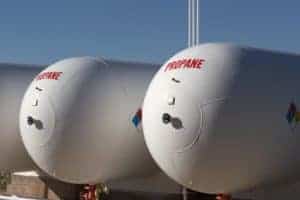 Liquefied Petroleum Gas, or propane, is another clean burning fuel used in homes and the second fuel of choice for a standby generator. It has slightly more energy than natural gas. Homeowners and businesses store LP gas for use in large tanks ranging from 125 to 1000 gallons or more. The tank size represents the volume of liquid it may hold. However, space is needed for the liquid fuel to evaporate into the gas that appliances and generators use, so the tanks are never filled completely full. An LP gas supplier would only fill a 500 gallon tank with about 400 gallons of fuel to leave space in the tank for 100 gallons of evaporated gas. The LP tank may require periodic filling during an extended power outage.
Liquefied Petroleum Gas, or propane, is another clean burning fuel used in homes and the second fuel of choice for a standby generator. It has slightly more energy than natural gas. Homeowners and businesses store LP gas for use in large tanks ranging from 125 to 1000 gallons or more. The tank size represents the volume of liquid it may hold. However, space is needed for the liquid fuel to evaporate into the gas that appliances and generators use, so the tanks are never filled completely full. An LP gas supplier would only fill a 500 gallon tank with about 400 gallons of fuel to leave space in the tank for 100 gallons of evaporated gas. The LP tank may require periodic filling during an extended power outage.
Propane is a good fuel choice where natural gas is unavailable or to run RV generators.
LP Propane Generators for Home
Propane RV Generator Models at Norwall
Gasoline
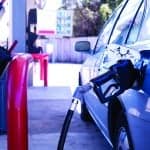 Gasoline is a readily available fuel commonly used for automobiles, trucks, and small engines. It carries about 20 percent more energy than a similar amount of natural gas. Safe storage of gasoline is more difficult than LP gas. Many communities limit the quantity of gasoline a homeowner may store. It is a good fuel choice for portable and RV generators, but long-term storage of the fuel is troublesome. Stabilizers can extend the useful life from a few months to a year or more, but rotation of supplies is still required. In a widespread power outage, buying gasoline to power a portable generator is often difficult.
Gasoline is a readily available fuel commonly used for automobiles, trucks, and small engines. It carries about 20 percent more energy than a similar amount of natural gas. Safe storage of gasoline is more difficult than LP gas. Many communities limit the quantity of gasoline a homeowner may store. It is a good fuel choice for portable and RV generators, but long-term storage of the fuel is troublesome. Stabilizers can extend the useful life from a few months to a year or more, but rotation of supplies is still required. In a widespread power outage, buying gasoline to power a portable generator is often difficult.
Diesel
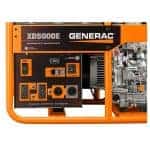
The XD5000E Diesel Generator
Diesel is another commonly available fuel often used in large portables generators, RV generators, and some standby generators. Diesel engines rely on the heat generated by compression to ignite the fuel, which makes it incompatible with engines that rely on spark plug ignition. Diesel engines cannot be easily switched or converted to other fuel types. Stored diesel has a longer shelf life than gasoline, but will absorb moisture from the air which can render it useless for use as a fuel. Of the four most common generator fuel types, it has the most energy.
Diesel provides more electrical power than equivalent volumes of gasoline, propane, or natural gas. In a modern engine it runs quieter and cooled, and prolongs the life of the machine
Diesel Standby Generators, Diesel Portable Generators, Diesel RV Generators
Generator manufacturers design and build generator engines to run on one or more types of fuel. LP gas and natural gas are similar, so it is fairly easy to compromise and build an engine that will run on both, and some can also run on gasoline.


